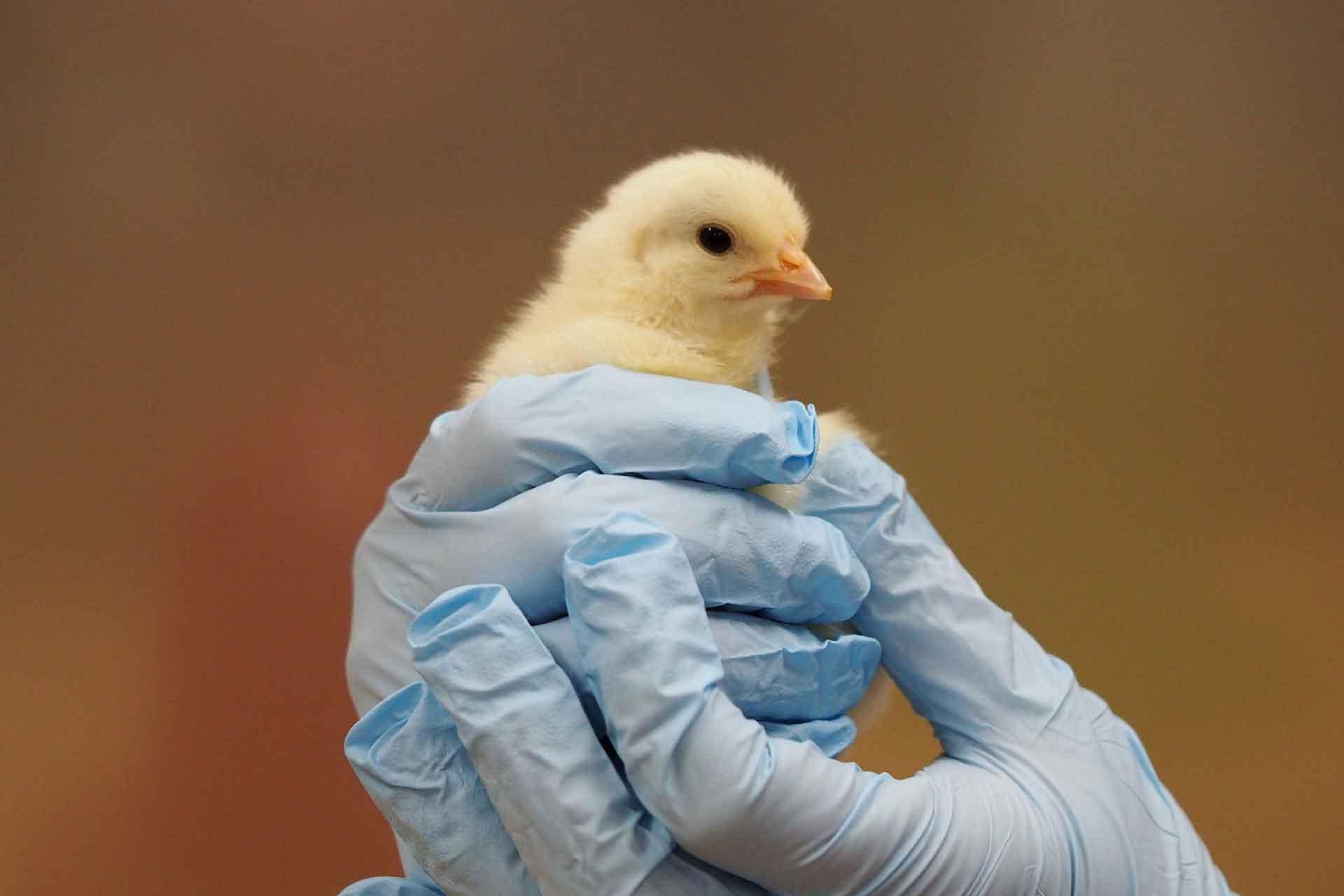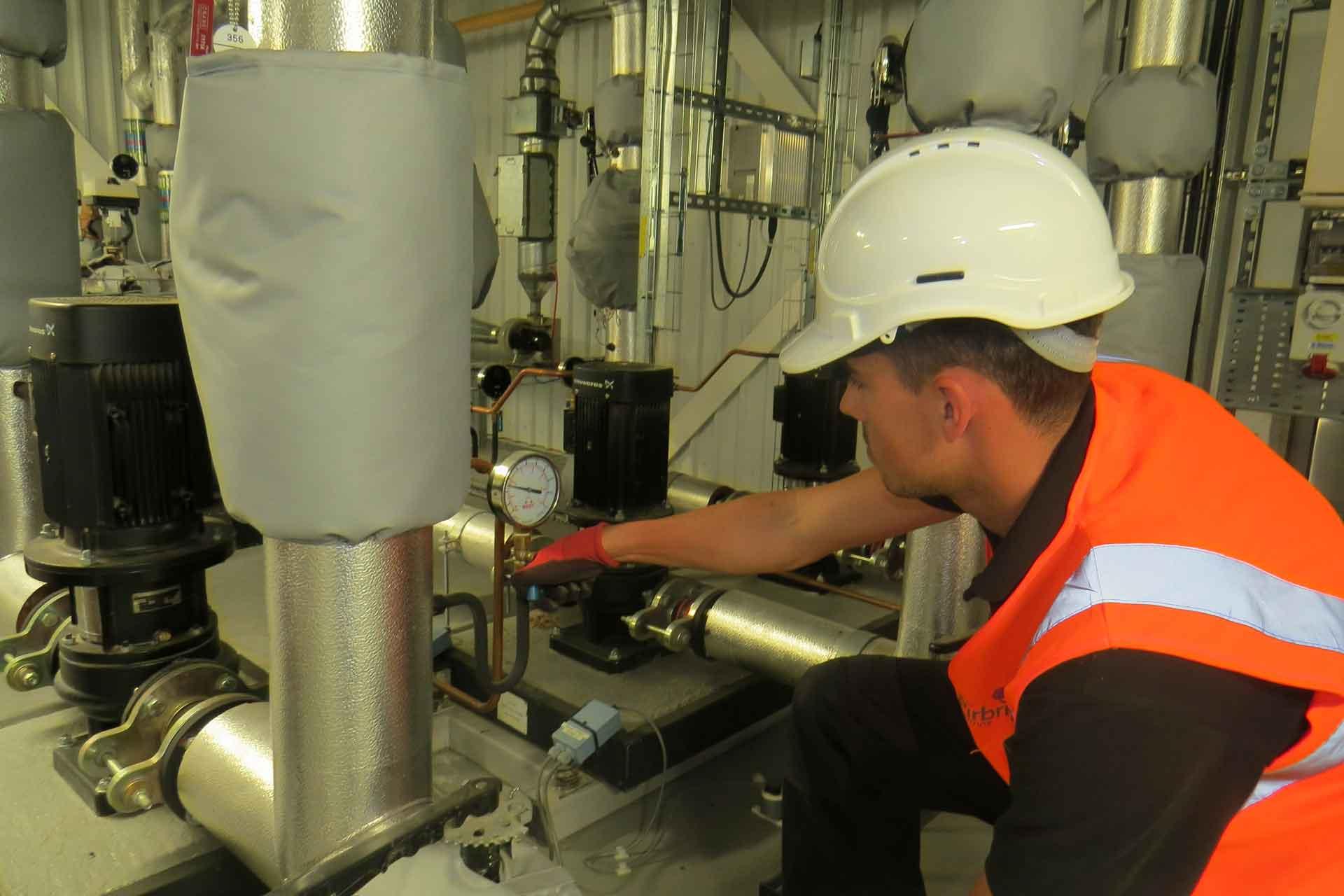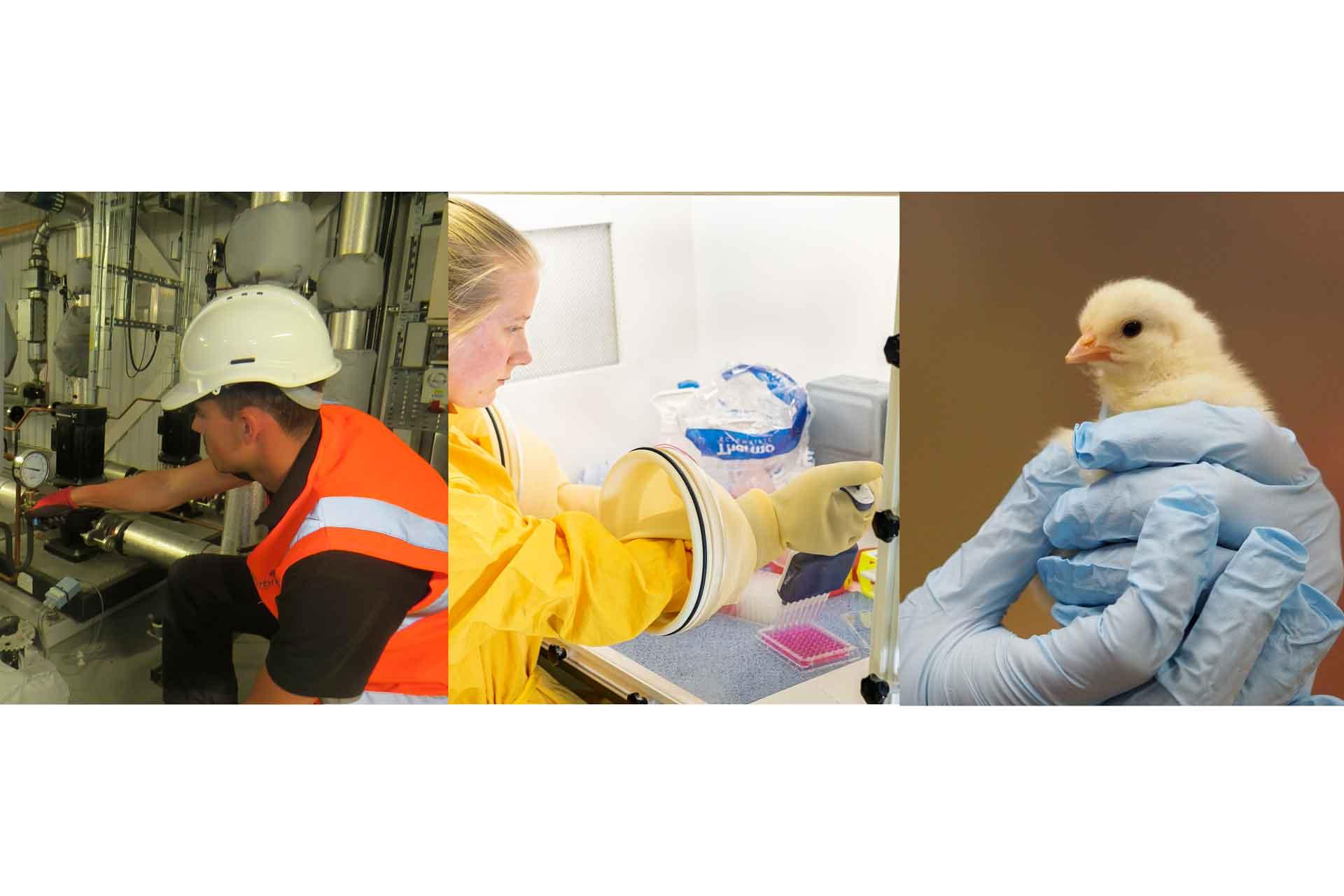Investigating viral diseases of animals requires experts from many fields. Scientists work to understand how viruses cause infection and how diseases can be controlled using vaccines and surveillance. However, there are many other professions involved in generating The Pirbright Institute’s globally renowned research. This British Science Week we are shining the light on three of the lesser-known roles at Pirbright, which our studies and innovations could not progress without.
Animal Technicians

The ultimate aim of Pirbright’s research is to improve global animal welfare through reducing the burden of viral diseases. Although the Institute aims to reduce, refine and replace the use of animals in research (3Rs), there are some areas of research which need to be carried out using animal models as there are no laboratory alternatives. High standards in the design and conduct of animal research and full implementation of the 3Rs are important for ethical reasons and to obtain the best possible scientific results.
Animal Technicians are experienced specialists in the care of animals and undertake an accredited personal licence training course. Once qualified, they receive further practical training and supervision to enable them to undertake regulated procedures at Pirbright.
All Technicians are trained in daily animal handling, husbandry, the recognition of signs of pain, distress and disease and the ethics on the use of animals in research. Working closely with Pirbright’s vets and scientists, they make sure that animals used in research are provided excellent care whilst ensuring the results obtained are high quality.
In addition to conducting daily health and welfare checks of the animals to monitor their wellbeing, Technicians also handle the animals and collect the necessary samples that are needed for scientists to analyse.
Our Animal Services team endeavour to exceed the minimum legislative standards of animal care and housing where possible, for example by providing extra enrichment and environmental stimulation. For more information about animals in research at Pirbright, visit our dedicated pages.
Engineers

Pirbright’s research into preventing and controlling high consequence exotic animal viruses, such as African swine fever virus and foot-and-mouth disease virus, is undertaken in the BBSRC National Virology Centre: The Plowright Building. This state-of-the-art facility houses laboratories that meet the highest level of containment. Maintaining the operation of these labs, as well as the other facilities on site, falls to a team of specialist engineers.
The team work through planned schedules of maintenance to make sure that the laboratories and specialist equipment are functioning as they should, and coordinate the repair of breakages should they occur. This involves continuously monitoring essential systems like the air handling units, which maintain negative air pressure in The Plowright Building to prevent viruses from moving into the environment.
Ensuring the correct environmental conditions are met in the animal housing facilities forms a critical part of the team’s role, such as the control of temperature and humidity in the insectaries, which is vital for animal welfare and the success of experiments.
Engineers also participate in the Institute’s development programme, where their expertise helps to guide the design and development of new buildings such as The Brooksby Building.
Health, Safety and Biosafety Advisors
© Ed Brydon
Due to the nature of Pirbright’s research, the Health and Safety Executive (HSE) regards the Institute as a high-risk site. Health, Safety and Biosafety (HSBS) Advisors therefore play a critical role in applying health and safety regulations to the specific tasks carried out at Pirbright.
HSBS Advisors provide expert advice, guidance and training for everyone at the Institute to ensure compliance with regulations, to protect staff safety and safeguard the environment. This can involve assessing and minimising the risks associated with carrying out research and maintenance tasks, or running training on how to use facilities and instruments safely.
Pirbright’s HSBS Advisors have a background in science alongside a raft of HSBS qualifications, which help them to distil the information written in laws and licences and use it to guide the safety of our science activities. This is especially vital for managing work in the Institute’s world-class high containment laboratories and animal facilities.
